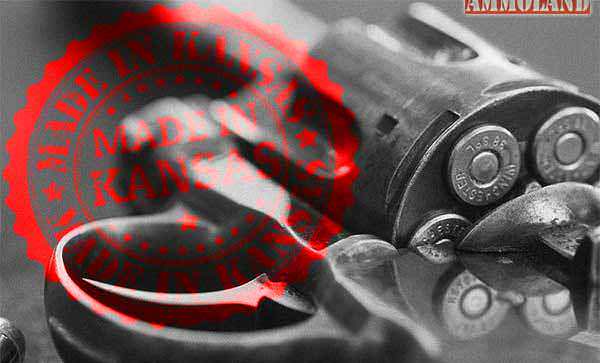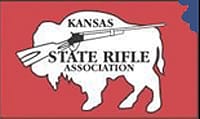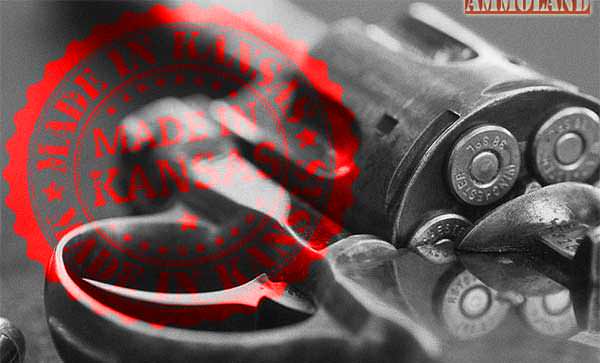

Kansas – -(Ammoland.com)-The Kansas State Rifle Association and Patricia Stoneking worked tirelessly during the passing of the Second Amendment Protection Act (SAPA).
The Kansas SAPA was intended to allow Kansans to manufacture firearms without FFL’s and sell only to other Kansas residents without being regulated by the ATF.
“However, it is abundantly clear that to do so may very well put you at risk of being arrested and jailed in a federal facility pending a trial. Once that happens, the first case would be a test case. We could win or we could lose as the Kansas Attorney General attempts to defend the legal position of the SAPA in the courts. Meanwhile the test case individual could sit in a federal prison and possibly risk their ability to ever own firearms again if ultimately adjudicated guilty by the courts after all legal means to defend are exhausted, not to mention the financial hardship it would no doubt incur.”
“The Kansas SAPA does provide intended protections for firearms manufactured or owned inside the borders of Kansas in regards to registration and confiscation. There is a provision that requires the Kansas Attorney General to file for injunctive relief should any official, agent or employee of the federal government violate the provisions found in Section 8 of the SAPA and try to enforce any act, law, treaty, order, rule or regulation regarding a firearm or firearm accessory or ammunition that is manufactured commercially or privately and owned in the state of Kansas and that remains within the borders of Kansas. And the SAPA makes it a felony offense to try to enforce such. Of course, this still does not mean the arrest cannot take place and that you cannot become a test case for the law.”
“It is therefore the recommendation of the Kansas State Rifle Association (KSRA) at this time that you not go in to the business of manufacturing and selling guns that are not serialized or NFA regulated suppressors without being fully aware of the implications. Obviously, private individual sales have been and continue to be legal between a seller and buyer who are BOTH residents of Kansas but this does not apply to NFA items. It is our hope that at some point a case will arise that will allow the Kansas SAPA to be tested by the courts and that we prevail. The Brady Campaign filed such a lawsuit against Kansas in regards to this law and the court dismissed it for lack of standing.”
These quotes are part of a one hundred and twelve page document which Patricia Stoneking, authored and produced and has been available online through the Kansas State Rifle Association on our Kansas Gun Laws and Legislation Facebook page since October of 2015.
We fully support SAPA. However, her warning at the time still stands. We are adamant that SAPA is constitutional but, we do not believe any actions taken by individuals will solve this constitutional issue. It must be solved in the court of law not the court of opinions.
In the Cox and Kettler case Federal Judge Thomas Marten in Wichita has prohibited Cox and Kettler’s defense attorneys from using SAPA as a defense for their clients, effectively barring them from telling the jury why they are innocent.
One of our board members, Vern Swick, attended the entire trial and kept in touch with us with events as they unfolded.
The attorney general of Kansas filed a post-trial brief defending constitutionality of a state law guiding manufacture, sale and possession of certain firearms after two men trying to follow that law were convicted by a Wichita jury of federal firearms violations.
Attorney General Derek Schmidt sought dismissal of criminal charges against defendants Jeremy Kettler and Shane Cox, who argued they had relied on Kansas’ Second Amendment Protection Act, which was approved by the Kansas Legislature and signed by Gov. Sam Brownback. The 2013 statute exempted from federal prosecution anyone making, selling or owning firearms within Kansas.
“The defendants here argued that their good-faith reliance on a valid state statute should be a defense to their actions,” Schmidt said. “That position is reasonable, and it is consistent with the state’s interest in ensuring the Second Amendment Protection Act itself is defended.”
Schmidt said the state would “strongly defend” constitutionality of the state law in federal appellate courts if the defendants advanced an appeal.
Before the trial, U.S. District Judge Thomas Marten declined to accept adherence to state law by Kettler and Cox as justification for not abiding by the National Firearms Act. The judge did indicate the U.S. Supreme Court might eventually review the case on appeal.
Cox was found guilty on eight counts of illegally marketing and making firearms, including a silencer. Kettler was found guilty on a single count of purchasing an unregistered silencer from Cox. One of the defendants filed a motion to dismiss the case despite the jury’s verdict.
“If, through its ruling on (the defendant’s) motion to dismiss or otherwise, this court were to find the constitutionality of the Second Amendment Protection Act to be at issue here, the court should hold that the Kansas act is constitutional because it merely regulates what the federal government may not regulate,” Schmidt said in the latest filing.
Schmidt said the state law was intended to reaffirm limits on authority of Congress to regulate firearms. The Kansas law was written to address federal firearm statutes enacted under the power of Congress to regulate interstate commerce, the attorney general said.
In this case, however, federal prosecutors leaned on provisions of the National Firearms Act, which is part of the federal tax code and adopted under congressional authority to levy taxes, not to regulate commerce.
Robert Levy, the Chairman of the board at the Cato Institute has written:
If a state deems a federal law to be unconstitutional, what’s the proper remedy? The answer is straightforward. Because the Supreme Court is the ultimate authority, the remedy is a lawsuit challenging the constitutionality of the suspect federal regulation or statute.
Kathleen Wade
President
Kansas State Rifle Association
About Kansas State Rifle Association:
The Kansas State Rifle Association has one purpose. To promote and strive for the improvement and protection of the firearms and sport shooting industry and protection of second amendment principals by encouraging and stimulating well-qualified individual citizens to run for public office and to take a more active and effective part in governmental affairs. Visit: www.ksraweb.net



www .thetrace.org/2016/12/kansas-second-amendment-protection-act-silencers/ The link above is where i got the tiny paragraph below written by Allen Rostron December 8, 2016. “It’s clear now that the legislators who pushed forward the law were well aware of the unresolvable conflict with federal law and the U.S. Constitution, and that they assumed that Kansans would understand that the act was meant to send a message, not to be taken literally.” So basically all laws are sent as a message but not to be taken literally? This shows how incompetent our legislators are & how easily they can set up the law abiding citizens… Read more »
I don’t recall seeing any Calls for action on this case unless it was months ago. There definitely hasn’t been a sufficient attempt to inform Kansas gun owners about this coming from the KSRA. I’m disappointed at the lack of attention this has been given.
So the question is when will we know if and when this is going to the supreme court??
KANSAS STATE RIFLE ASSOCIATION RESPONSE TO SAPA: FORGET 131 STATE LEGISLATORS OUT OF 165 PASSED IT! FORGET 80% OR 2.4 MILLION KANSAN’S SUPPORTED IT! WE HAVE TO GET ON OUR KNEES TO *** 9 *** BLACK ROBE TYRANTS OF THE FEDERAL JUDICIARY BEFORE WE ARE ALLOWED TO HAVE OUR GOD GIVEN RIGHTS? – A supreme Court that said some Men had no Right to be Free? That Court? – A supreme Court that took away a Babies Right to Life? That Court? – A supreme Court that took away our Right to determine our own Healthcare? That Court? – A… Read more »
Calling a suppressor a “silencer” is the same as referring to a magazine as a clip. 🙂
Generally only hollywood or CA legislators use those those terms